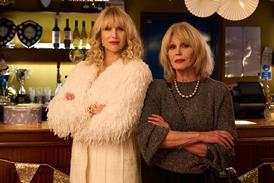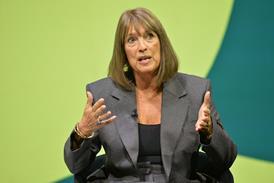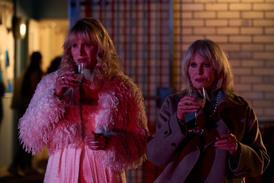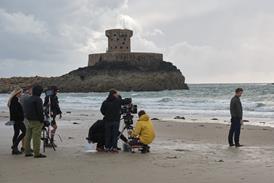Read the charter in full
COALITION FOR CHANGE THE FREELANCE CHARTER
1. Introduction
1.1 The Coalition is committed to promoting equal opportunities for production operatives (Freelancers). This Charter is born out of the Coalition’s commitment to create a transparent way of engaging and working with freelancers with the intention of promoting a positive workplace culture in which everyone is treated fairly and with respect.
1.2 The Coalition is an evolving collaboration. It currently consists of the broadcasters, independent production companies and industry bodies specified in Appendix A but the members appeal to the entire television industry to sign up to its principles. All Coalition members understand that we have a shared responsibility to improve how we work together and treat each other. We commit to implement an appropriate standard of behaviour as detailed in this Charter, lead by example, and ensure that those we manage adhere to this Charter and promote its aims and objectives.
1.3 Day-to-day operational responsibility for this Charter will be that of the individual Coalition member. Progress made in adherence to this charter will be reviewed on an annual basis with broadcasters, producers, industry bodies and freelancers, including through freelancer surveys.
1.4 Nothing in this Charter confers any employment rights or employment status. This Charter does not form part of any contractual agreement, or intent to enter into such agreement, between a member of the Coalition and the freelancer, but rather consists of important aims, ambitions, and commitments.
1.5 Appendix A contains a list of Key Resources within the industry. This is not an exhaustive list but a reminder of valued partners in this endeavour.
2. Recruitment and Development
2.1 The Coalition is committed to ensuring fair and inclusive representation of all groups within society at all levels within the television industry both on and off screen. We share the responsibility and will take positive action to improve diversity whether by gender, ethnicity, disability, sexuality, age, socio-economic group, parental status, or any other characteristic which is underrepresented in our industry.
2.2 Data helps drive change and many companies are now monitoring diversity both on and off screen. We encourage everyone to engage with diversity capture reports. We are committed to furthering the reporting and sharing of data, so we can understand unfairness within the industry and seek to change it for the better. Creative Diversity Network’s Project Diamond is the established industry data collection system.
2.3 Productions are expected to undertake recruitment (and other selection exercises) on the basis of skills and ability, against objective criteria.
2.4 Productions commit to understanding and encouraging best practice recruitment and selection processes such as the ACAS guidance (see appendix) and equal opportunities guidelines (ie Government, ACAS). This includes, where possible, having balanced and diverse shortlists for vacancies and interviewing a minimum of two candidates for every role.
2.5 Productions should ensure, where reasonably practicable, that all relevant vacancies/opportunities are advertised, and as widely as possible, to attract a diverse pool of applicants.
2.6 Productions commit to opening up new opportunities and helping to break the cycle of rehiring by taking on new individuals they’ve never worked with before on each production.
2.7 The Coalition recognises that the industry has an issue with freelance talent becoming stuck mid-career and exiting the industry. After each production, producers commit to maintaining, where appropriate, a dialogue with freelancers to understand improvements that can be made to support career development. This includes, making post-production feedback meetings available where requested, with the objective of giving freelancer talent clear performance and training recommendations where appropriate.
2.8 Production companies should seek feedback from freelancers regarding their experience and areas of potential improvement.
2.9 In line with the Coalition’s values around trust and respect, broadcasters agree to work collaboratively with producers, on their choice of key members of the production team (eg Heads of Department), only becoming involved where necessary or where requested and reducing the need to impose people on a production to enable a fair and transparent recruitment process
2.10 Coalition members recognise the value of flexibility, including remote working, in enhancing inclusivity in the workplace so are supportive of job shares and encourage working flexibly where possible and making this clear when a role is advertised.
3. Workplace Culture, Bullying & Harrasment
3.1 The Coalition is committed to improving workplace culture throughout the industry, ensuring that we treat each other with trust and respect; promoting positive mental and physical health and wellbeing.
3.2 The Coalition commits to pay fairly and equally irrespective of gender, ethnicity, disability, sexuality or background, in line with legal obligations under the fair pay principles in accordance with the Equal Pay Act.
3.3 The Coalition recognises the importance of freelancers to the industry, the quality of our programming and the reputation of British production around the world. We recognise that the industry is built on partnership and hold this a core principle in how we work together.
3.4 Productions agree to ask all new freelance starters about their requirements for reasonable adjustments, and will make best endeavours to provide for such adjustments to ensure they have the opportunity to do their job on an equal par to those who are non-disabled. This could include changes to policies, working practices or physical layouts, or providing extra equipment or support etc. Where possible producers should support on Access to Work applications.
3.5 The Coalition has zero tolerance for bullying and harassment, not only in our industry but in all of society. All those working in the industry including broadcasters, producers and freelancers, are expected to foster a healthy, fair and inclusive working environment free from harassment, bullying and undesirable practices in line with the BFI/BAFTA principles and guidance. It is the individual responsibility of on screen talent and senior executives to model this behaviour and lead by example.
3.6 Everyone is encouraged to ‘speak up’ where they experience or see malpractice and Coalition members are expected to deal with any concerns in an active, resolution-seeking way and where appropriate report them to the relevant authority. All productions are expected to put in place a mechanism to address any concerns that a freelancer or other staff may raise about contraventions of this Charter. Everyone should be encouraged to raise their concerns to the relevant Coalition member, in the first instance this should be the company hiring or employing them. Where direct communication is difficult for freelancers, they are also encouraged to raise concerns directly to the broadcaster for whom the show or project is being made or the relevant authority.
Coalition members agree that all freelancers on productions should be given clear guidance and training on how to raise concerns, encouraged to use them if necessary, including providing the contact details on all call sheets as well as clearly displaying posters with the Helpline numbers around the workplace ie back of toilet doors, catering table, etc for any members who may not receive the call sheet.
3.7 Productions are expected to provide a number of ways for individuals to raise a complaint and/or report inappropriate behaviours by providing their company’s Reporting Helpline (if applicable) and the respective Broadcaster’s Reporting Helpline. For further support use the Film and TV Charity’s Suppot Line which offers independent, confidential and free support (see appendix). All reporting services should consider the need for access by disabled people.
3.8 Productions should have an identifiable individual, usually the executive producer or member of the senior team, who has overall responsilbity for safeguarding. In addition to this, where possible, productions should have a designated safeguarding officer on the ground, who is capable and has the capacity to direct any concerns to the executive producer or broadcaster as appropriate. Productions should inform broadcasters who the nominated safeguarding lead will be.
3.9 The Coaltion recognises the importance of training in diversity and inclusion and allyship at all levels of the industry and commits to facilitating training for all broadcasters, producers and freelancers. At the start of each production producers should ensure that ‘respect in the workplace’ sessions, that highlight essential behaviours around unconscious bias, inclusivity and allyship, are offered to all production staff, including on screen talent, and that it is completed at least once per year.
3.10 Coaltion members are encouraged to provide details on how to access Mental Health First Aiders or other appropriate well-being support and information on Access to Work for disabled professionals
3.11 The Coalition recognises the importance of acting as environmentally conscientious workplaces and the impact this can have on the health and well being of our workforces. All members of the Coalition agree to work with production teams and individuals to reduce their carbon footprint with the goal of carbon neutral production and to take personal responsibility for reducing their own impact on the climate. Where possible productions should engage with BAFTA’s Albert initiative.
4. Commissioning Conduct
4.1 Coalition members commit to being polite and respectful of others no matter what their level of experience or standing in the industry. Broadcasters recognise that being on time for meetings is a basic level of courtesy and commit to avoid late cancellations unless absolutely unavoidable.
4.2 Coalition members commit to strengthening trust within the industry. The creative process is a partnership and broadcasters commit to engendering cultures of support, collaboration, honesty and good communication.
4.3 Broadcasters commit to acknowledging receipt of ideas and sticking to promises on response times, where published. Swift decision making and constructive feedback, where possible, are vital in allowing producers to do their best work.
4.4 The amount of time between greenlight and production starting is vital in achieving many of the Coalition’s aims around better and more diverse recruitment practices. Broadcaster members recognise this and commit to helping support realistic production timescales wherever possible.
5. Working Hours
5.1 Coalition members recognise that long working hours are sometimes necessary in exceptional circumstances but they can have a significant negative impact on health and wellbeing in the long term. Coalition members recognise and agree that long working hours should not be normalised and that unrealistic production schedules should be avoided.
5.2 The Coalition recognises the work of initiatives such as The Time Project, in gathering data around working hours in order to identify targeted solutions to this issue. We encourage freelancers to engage and submit their information to such projects.
5.3 Broadcasters and producers should collaborate to ensure that productions are adequately resourced from the outset, and maintained, to protect the health and wellbeing of the people working on them and be reactive mid-production where problems arise.
6. Training Opportunities
6.1 The Coalition recognises that accessible training and development in the freelance sector is essential to the progression, well-being, and productivity of individuals. This is also in the best interests of the industry. It is recognised there is a need for more high quality, inclusive, affordable and accessible training, available across the UK, in a bid to professionalise and diversify our industry, particularly in the areas of people management, leadership, mental health and wellbeing and other training which supports the objectives of this Charter.
6.2 The Coalition would like to highlight the need for a specific focus on recruitment-related training for hiring managers eg unconscious bias, as well as interviewing and feedback techniques. Our strong recommendation is that over time these become mandatory for all those in hiring roles. (See appendix for suggested training)
6.3 The Coalition commit to work with training providers to make future training accessible – without access disabled people cannot learn or progress in the industry. This includes, but is not restricted to, image descriptions, alt text, subtitled video content, trigger warnings, audio description, appropriately qualified interpreters, contact forms for access requests, physically accessible venues, disabled toilets.
6.4 From time to time, members of the coalition may provide training which is open to freelancers. Coalition members are encouraged to promote training where appropriate via ScreenSkills (the industry led skills body) and other industry training bodies, which will help to raise awareness of such courses.
7.
Appendix A:
Coalition For Change Members signed up to the Charter:
- Amazon Prime Video
- BAFTA
- BBC
- BECTU
- BFI
- Channel 4
- Channel 5/ ViacomCBS
- Deaf and Disabled People in TV
- Directors UK
- Mama Youth
- Sara Putt Associates
- ScreenSkills
- Sky Content
- Share My Telly Job
- STV Group plc
- Telly Mums Network
- The Film & TV Charity
- The TV Collective
- The TV Mindset
- The Unit List
- UKTV
- Viva La PD
- Women in Film and TV
Please note: Membership organisations, guilds and unions shall endeavour to procure that their members act in accordance with this Charter.
Terms
Definition of a Freelancer – an individual who is engaged on fixed term projects and is not an employee of, or committed to a specific engager (business) in the long term - Freelancer Self Employed, Freelancer PAYE, Sole Traders, those legitimately engaged through a Personal Service Company, Limited Company or Agency Definition of a Coalition Member – an individual or organisation who is committed to improving the working life of freelancers and has either signed up to the Charter or is actively engaged in creating it
Key Service Providers and resources:
Training and Development
• ScreenSkills – https://www.screenskills.com
ScreenSkills is the industry led skills body for the screen industries and works in conjunction with a range of trainers and training providers
o Training and opportunities - https://www.screenskills.com/training-andopportunities/all/#/
o Some recommended courses:
• Leadership and management essentials (essential key learnings course)
• Addressing unconscious bias : basic awareness in the workplace e learning module (tackles ‘like bias’s and ensuring a fair process when crewing up)
• Disability Awareness in association with thinkBIGGER! (NB: tailored to & only open to individuals in scripted/unscripted tv with hiring responsibilities)
• Fair Recruitment (coming soon)
• Mental health basic awareness (coming soon)
• Tackling harassment and bullying at work e-learning module (builds on principles of zero tolerance guidelines by BFI/BAFTA)
• BAFTA – https://www.bafta.org/supporting-talent
• BECTU - https://bectu.org.uk/training/
• Creative Access - https://creativeaccess.org.uk/
• Mental Health First Aid England – https://www.mhfaengland.org
• Solas Mind Mental Health Training - https://www.solasmind.com/
• SMTJ www.sharemytellyjob.com , speaktous@smtj.tv
Recruitment
• ACAS- https://www.acas.org.uk/hiring-someone/interviewing-job-applicants
Free confidential helpline 0800 123 1100 (Relay UK Line for hearing or speech impairment 18001 0300 123 1100)
• Government – https://www.gov.uk/guidance/equality-act-2010-guidance
• Equal Access Network – equalaccess@filmlondon.org.uk
• Creative Access – https://creativeaccess.org.uk
• ScreenSkills - https://www.screenskills.com
• Dandi, a branch of the TriForce Creative Network – info@dandi.org.uk
• The Talent Manager – https://thetalentmanager.co.uk
• Mama Youth Talent Pool –email: tors@mamayouthproject.org.uk
• The Hue List – https://www.hue-list.com/
• The British Black List – https://thebritishblacklist.co.uk/blacklist/
• Reel Angels – email: creative@reelangels.tv
• Project Noir – facebook group – email: hello@projectnoirhub.com
• SMTJ www.sharemytellyjob.com , speaktous@smtj.tv
• Talentbases - https://www.talentbases.com
• The Unit List http://www.theunitlist.com/
Mental Health and Well-being
• The Film and TV Charity - https://filmtvcharity.org.uk/
The Film and TV Support Line including the Bullying Pathway Service Tel: 0800 054 0000
• ACAS- https://www.acas.org.uk/hiring-someone/interviewing-job-applicants
Free confidential helpline 0800 123 1100 (Relay UK Line for hearing or speech impairment 18001 0300 123 1100)
• Mind charity - https://www.mind.org.uk/
Tel: 0300 123 3393
• Mental Health First Aid England – https://www.mhfaengland.org
• Solas Mind Mental Health Training - https://www.solasmind.com/
• BFI - https://www.bfi.org.uk/inclusion-film-industry/bullying-harassment-racismprevention-screen-industries tytyty
• Telly Mums Network – via Facebook
https://www.facebook.com/groups/tellymumsnetwork or tellymumsnetwork@gmail.com
• Directors UK – Bullying & Harassment, A Handbook for Screen Directors
https://tinyurl.com/DUKbandh
• The Time Project www.thetimeproject.co.uk
Industry Bodies
• Deaf & Disabled People in TV via Facebook DisabledPeopleinTV link
• Think Bigger - https://www.thinkbigger.uk.com
• Creative Diversity Network - https://www.creativediversitynetwork.com

































1 Readers' comment